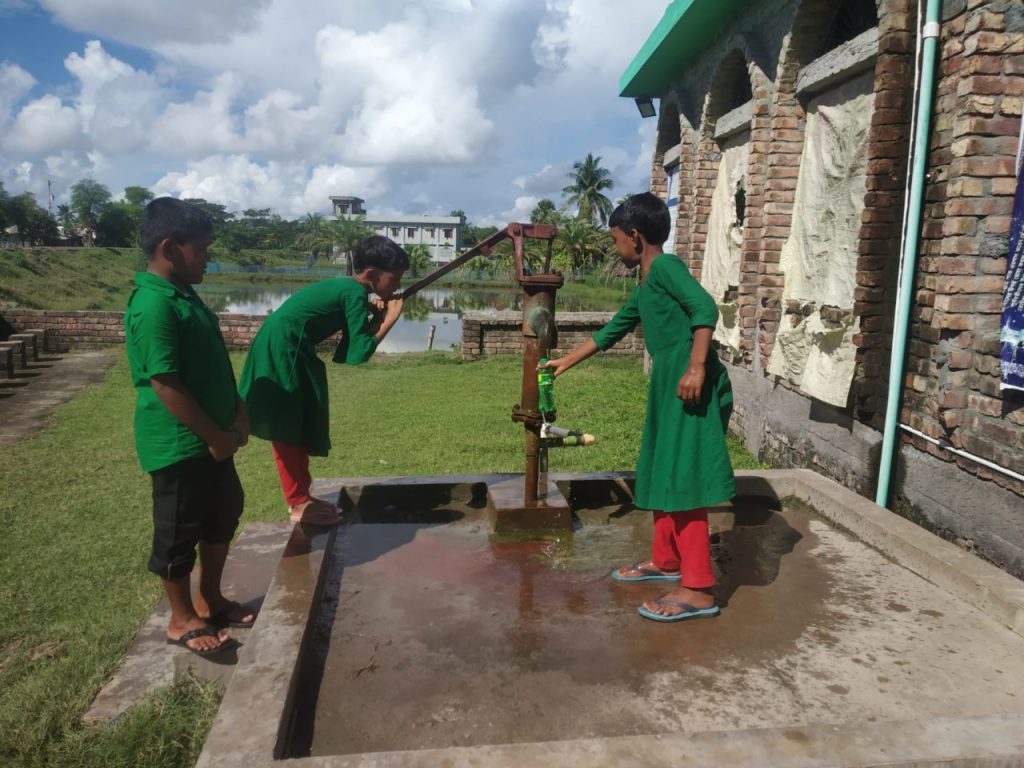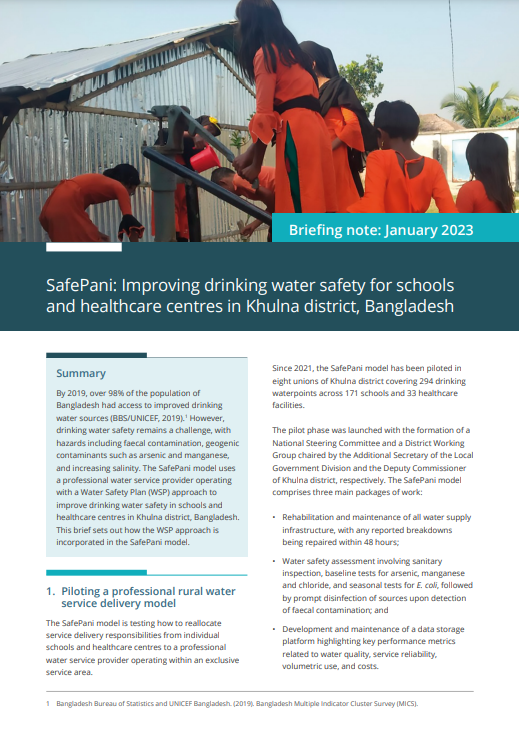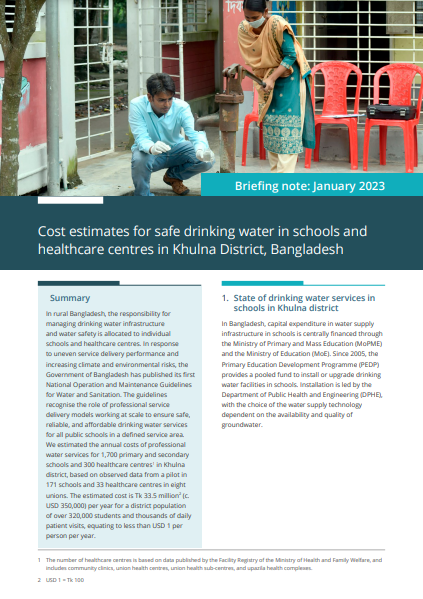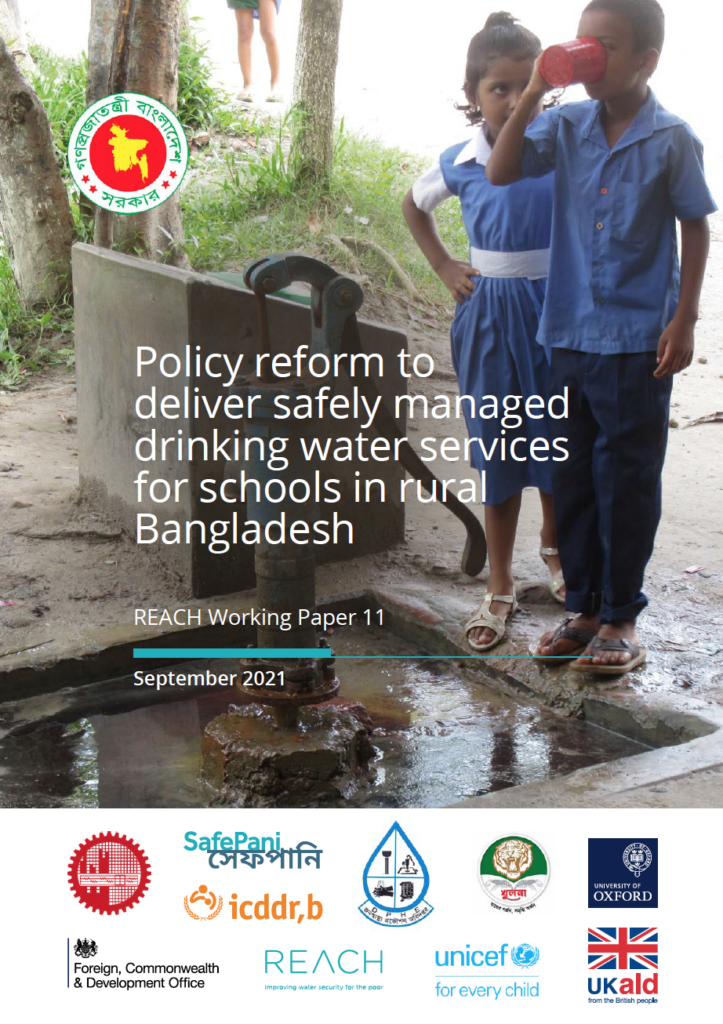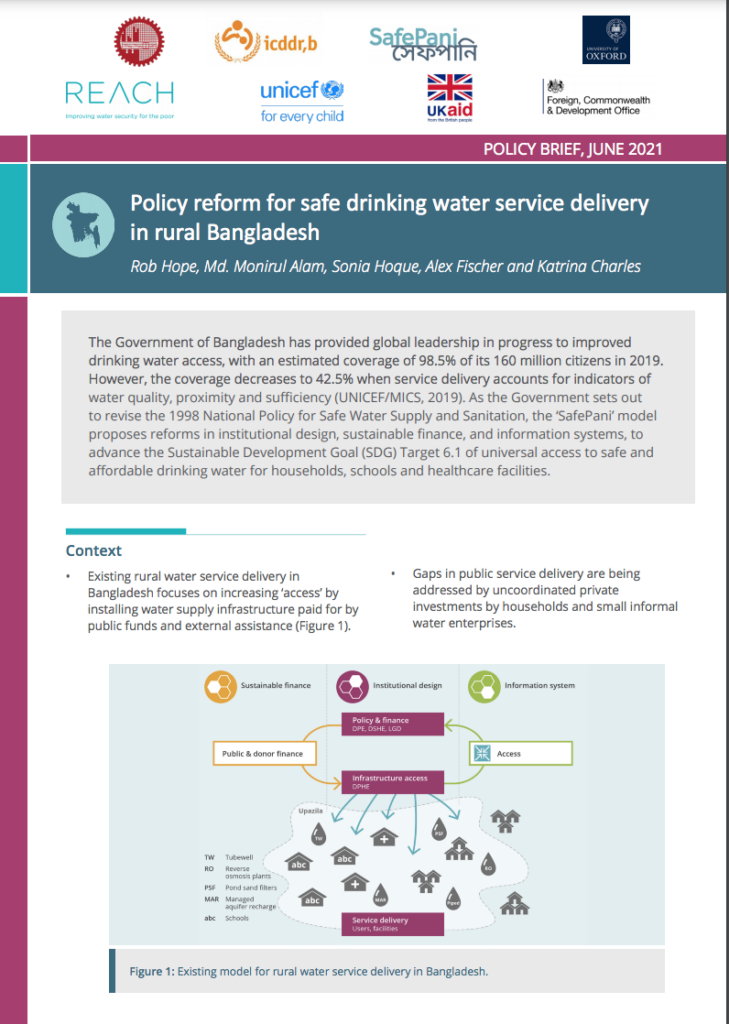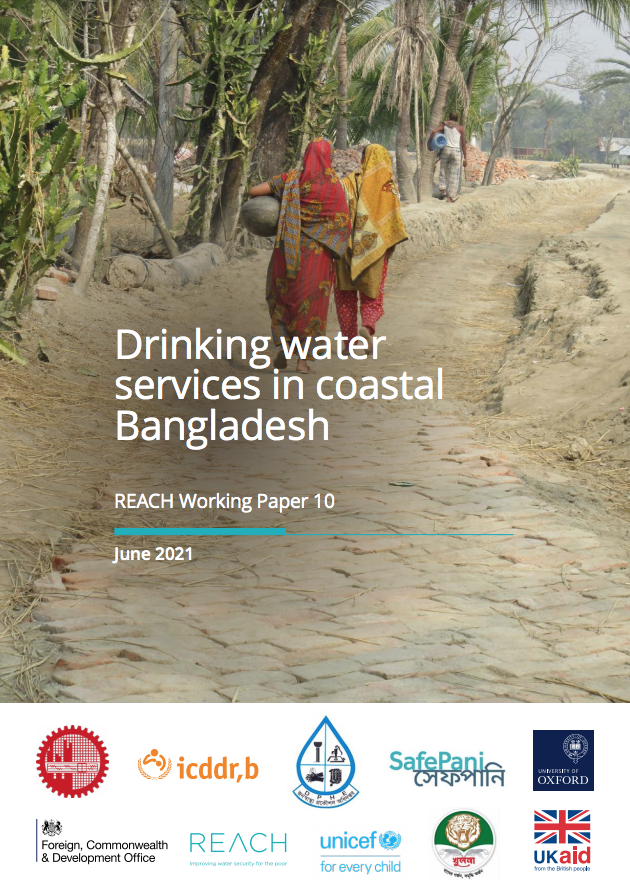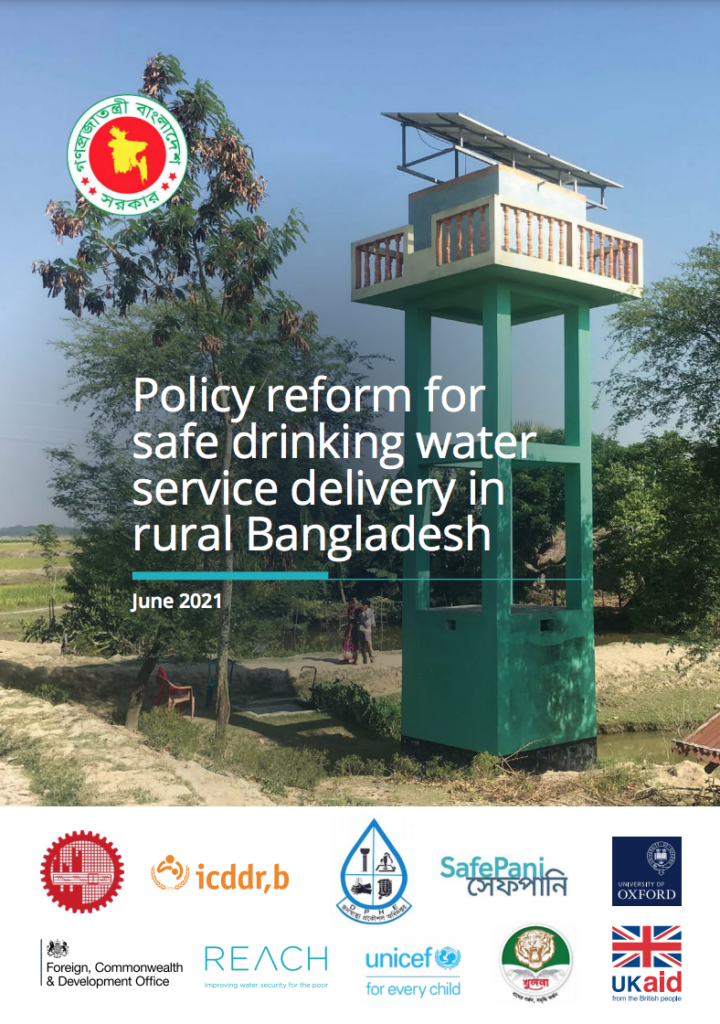
Improving water security for the poor
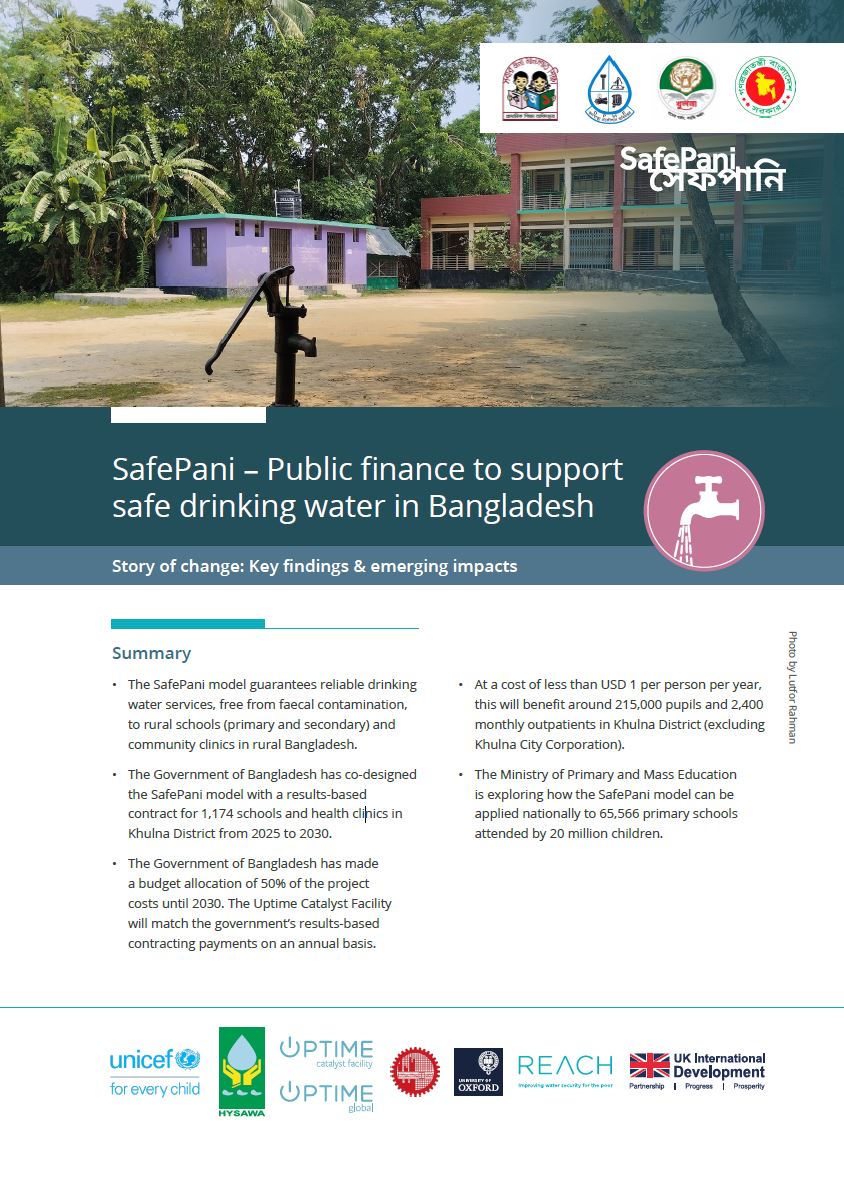
SafePani – Public finance to support safe drinking water in Bangladesh
The SafePani model guarantees reliable drinking water services, free from faecal contamination, to rural schools (primary and secondary) and community clinics in rural Bangladesh.
SafePani represents a change in National WASH Policy and national planning in Bangladesh. For the first time in 2025, safe drinking water services will be ensured in public schools and community clinics with a sustainable funding model to ensure accountable service delivery to 2030. At a cost of less than USD 1 per person per year, this will benefit around 215,000 pupils and 2,400 monthly outpatients in Khulna District (excluding Khulna City Corporation).
The Ministry of Primary and Mass Education is exploring how the SafePani model can be applied nationally to 65,566 primary schools attended by 20 million children.

